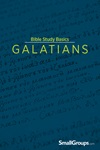When teaching about the organic church, a question I am asked more than any other is how we handle the threat of heresy. The common understanding is something like this: if we rely upon uneducated leaders and teachers, won't we allow heresy to run rampant in our churches? Of course this is a risk, but I believe there are simple ways to lower the risk of such an infection.
A healthy body with a strong immune system fights off infection better than a sick one. It is a natural function of the body inherent in its very makeup. And I suggest there is a better immune system for the body of Christ than the one we have been comfortable with for so long.
What Is the True Threat?
In reality there is not a way to eliminate heresy 100 percent from the church. Jesus told us that there would always be false teachers (Matthew 24:4-5, 11). The enemy is a liar (John 8:44) and he works in clandestine ways to infiltrate our ranks (Jude 4, 10-13). If the liar can input something other than truth into our minds, then he can keep us from being all that the resurrected Christ intended for us. Ironically, I fear he has succeeded to do just that—under the banner of avoiding false doctrine.
The best solution to heresy in the church is not to have better-trained leaders in the pulpits, but better-trained people in the pews. While many will say that the key to better-trained people are leaders who equip them, this unfortunately is most often not the reality. It is true that we need better leaders who empower and equip common Christians to know the truth, spread the Word, and do the work of ministry (Ephesians 4:11), but that is very different than the sort of leaders who screen all beliefs and are the gatekeepers of God's Word. As long as our leaders are considered the gatekeepers of truth, we leave the majority of God's people in the dark—which makes them susceptible to leaders who do the thinking for them, because that is what they have been trained to do. It is ironic that the very thing we think will prevent heresy actually feeds the problem.
There is no gatekeeper for God's Word. While the apostle Paul was behind bars, held in place by a keeper of the gate, he said these words: "the Word of God is not imprisoned" (2 Timothy 2:9). I do not need to protect God's Word, it protects me! People have been attacking God's Word in every generation. Entire empires have launched full-scale war against God's Word and fallen, yet the truth of God's Word stands. The thought that God's Word needs my help is truly foolish. Men have not kept God's Word pure; it is God's Word that has kept men pure. We are sadly lost if we ever lose sight of this fact. We need God's Word more than it needs us.
The Word of God in the hands of his people is not a dangerous thing! Such an idea just reeks of Satan, does it not? Why are we afraid of such a thing? Keeping the Word out of "regular" people's hands is a very dangerous practice, which is something we need to repent of immediately! Good men and women throughout history have lost their lives for the right of others to have God's Word freely. Let us not cheapen their sacrifice.
Are men capable of twisting the Word of God to suit their own purposes? Of course they are, and of course they will. Satan has done that from the very beginning and he will not stop until he is doing laps in the lake of fire. However, I do not put my trust in men; I put my trust in God and his Word. Do we actually think that the way to protect the church from human frailties is to make sure that they rely on other frail men to think for them? That is like trying to solve a problem with more of a problem. It is like trying to put out a fire with a bucket of kerosene.
Many feel that, when we have leaders who are not seminary trained, we are open to all sorts of bad teaching. The reality is that many heresies were born in seminary. Some would argue that the whole fundamentalist movement was born out of a reaction to the liberal and heretical teachings coming out of many of the seminaries, particularly in Germany during the early 20th century. We have been trained by our seminaries to think that we are incapable of holding off heresy without their help. Seminary as an institute for higher learning, however, is a relatively new phenomenon in church history—and I would venture to guess that we have not had less heresy since its invention.
When Is It Best to Teach Bible-Interpretation Skills?
Do I teach Scriptural interpretive skills in our movement? Yes I do, but it is not the first thing I do. First I set the saints to reading the Scripture without any middleman. Once the sheep hear the Good Shepherd's voice, they will follow Him for life.
There is a significant "imprinting" that needs to take place from the very beginning of a new life. Like the baby ducks that will follow their mother, new disciples must connect with God's voice early in their new life. Instead, most people in the church of America have imprinted upon the booming voice of their pastor preaching about God's Word rather than God's Word itself. As they mature they are told to read the Bible but rarely develop an appetite for it. I hear the common "mantra" of, "I try to read my Bible, but I never understand it. It makes so much more sense when I hear my pastor explain it." These are sheep that know their pastor's voice, but it is not Jesus' voice.
People will ask me, "Then are not the disciples going to misunderstand Scripture?" Yes, of course they are. And so did I when I was a young disciple. Maybe we need to realize that we will spend the rest of our lives trying to understand an infinite book that has no end to its depth of understanding. Perhaps we should allow people the freedom to make a few mistakes, leave with a few questions, and learn as they grow. I remember my first Bible study that I ever taught—it was heresy! And I managed to utter a four-letter word in it, as well. I am glad someone gave me a chance to do better the next time.
I think that if you were a careful student of church history, you would be surprised by some of the strange ideas that our historic heroes believed. God still blessed them, used them, and uses them still—but they did not have a complete picture of all of God's Word. Perhaps we are also a little blind to our own doctrinal faults, and these errors will be more evident in the decades and centuries to come.
An attitude that is humble and aware of its own inadequacy is a safer attitude to reinforce when it comes to Scripture interpretation than one that is so confident that it knows all truth and puts every belief in its appropriate mental "box." This latter attitude is more of a heresy than we realize. It is contrary to Scripture and produces a dull and unlearned church. A teacher who has many questions is far more desirable than one who has all the answers.
So, I do teach basic Bible interpretation skills, but I wait until the disciples emerge as leaders and are preparing to teach others. When they are responsible for the learning of others, then I teach them basic interpretive skills. But here is the amazing thing: when I teach interpretive skills for the first time to a new leader, it is usually a refresher course for them. Because they have been reading an abundance of Scripture from the beginning, and reading entire books of the Bible repetitively and as a whole (a habit as part of the Life Transformation Group System we employ), they have already picked up much of the rules of interpretation intuitively. I have found that the Holy Spirit is an outstanding teacher and that the best interpretive rules are really common sense. By the time I am showing these rules to emerging leaders, they have already figured out much of it on their own.
How Do We Screen People, Doctrinally?
This raises a question of whether or not we should screen people over doctrines. In our movement it is what we consider the DNA of Christ's body that dictates life, health, and fertility. The DNA is Divine Truth, Nurturing Relationships, and Apostolic Mission. We want to see the DNA evident in every cell of the Body. It is what holds together our movement. That said, Divine Truth is crucial for health and unity in the church and in our own unique movement. So holding firmly to God's Word is of the utmost importance. Currently our movement consists of church planters that are associated with over 15 denominations (from Reformed to Vineyard) and 5 parachurch ministries. Now the question is: which beliefs are important and which are not as crucial? Is there a point when we exclude fellowship with certain people over doctrine?
One of the ways that we keep unity among our diverse movements is to run people through what we call the "bullet test." If someone held a gun to your head and said, "Renounce this doctrine or I will shoot," if you say, "pull the trigger," then it is a bullet doctrine. We must agree on bullet doctrines. We can hold to doctrines that are not bullet doctrines, and even teach them with conviction, but we don't exclude or attack brothers and sisters over non-bullet doctrines. They are secondary doctrines that are enlightening, but not worth dying over—and certainly not worth killing over.
For us, the bullet doctrines have consistently been the following. We believe in:
- One true God in three persons: the Father, the Son and the Holy Spirit.
- The deity and incarnate humanity of Jesus and his redemptive work evident in his death, burial, resurrection, ascension, and imminent return.
- Salvation is by grace through faith, and not ever the results of our own works.
- The inspiration and power of God's written Word in all of its revelation, without error in its original manuscripts.
- All believers are redeemed to be significant in the cause of God's kingdom and granted the empowerment necessary to do so.
Of course, this is not meant to be a fixed and static screening process. It is only a beginning to a relationship that will grow over time, and will be built on much more than cognitive assent to a set of stated beliefs.
We understand that this is also not a fool-proof method of screening out heresy. There were over nine hundred people in 1978 in Guyana who took a "Kool-Aid test" over the wrong doctrines and gave their lives for false teaching. History is littered with people who have given their lives for a lie, so this is not considered a mistake-proof method by any means. This is just a starting point for those who have the Spirit of God and listen to His voice and join together over uncompromising truth.
How Can We Keep Heresy from Exploiting the Organic Church?
We have an excellent antibody system in the organic church movement. In fact, I believe it to be better than the solution in the traditional church system.
Heresy usually emerges because of three things:
- A strong, opinionated leader who wants the most followers he can rally.
- A biblically illiterate group of Christians who will follow him.
- Scriptures are used out of context to construct a false doctrine.
With the Life Transformation Group strategy [and you can find out more about LTGs in Cultivating a Life for God or Search & Rescue] we have addressed all of these issues at the cellular level of church life. This is where the war against infection is won or lost in the body.
In an LTG, men or women meet with one or at the most two others. This is hardly an attractive following for a future cult figure. All those in an LTG are reading large volumes of Scripture (more than 25 chapters each week), and everyone in the group reads the same book, in context, in entirety and repetitively. This is not a biblically illiterate following. And it is very hard to take the Scripture out of context because all three people in the group who have the Holy Spirit in them are reading the same book in its whole context repetitively.
In conclusion, I firmly believe that the organic church movement is not just tolerating heresy or taking a step down in combating it. In reality, I am convinced that we have a better way of addressing the problems of heresy in the church without reverting to static controls or gatekeepers of God's truth. Perhaps the very thing we have been threatened by most—releasing the Scriptures into the hands of common Christians—is indeed the very thing that will slow the threat of heresy.
Martin Luther once said, "The two goals of my life are to get the Scripture into the language of every man and to get a hymnal into their hands. Set them loose and the flame will spread on its own." I say: "Let the flames rage."
—NEIL COLE; adapted from chapter 11 of Church 3.0: Upgrades for the Future of the Church (Jossey-Bass, 2010); used with permission.









